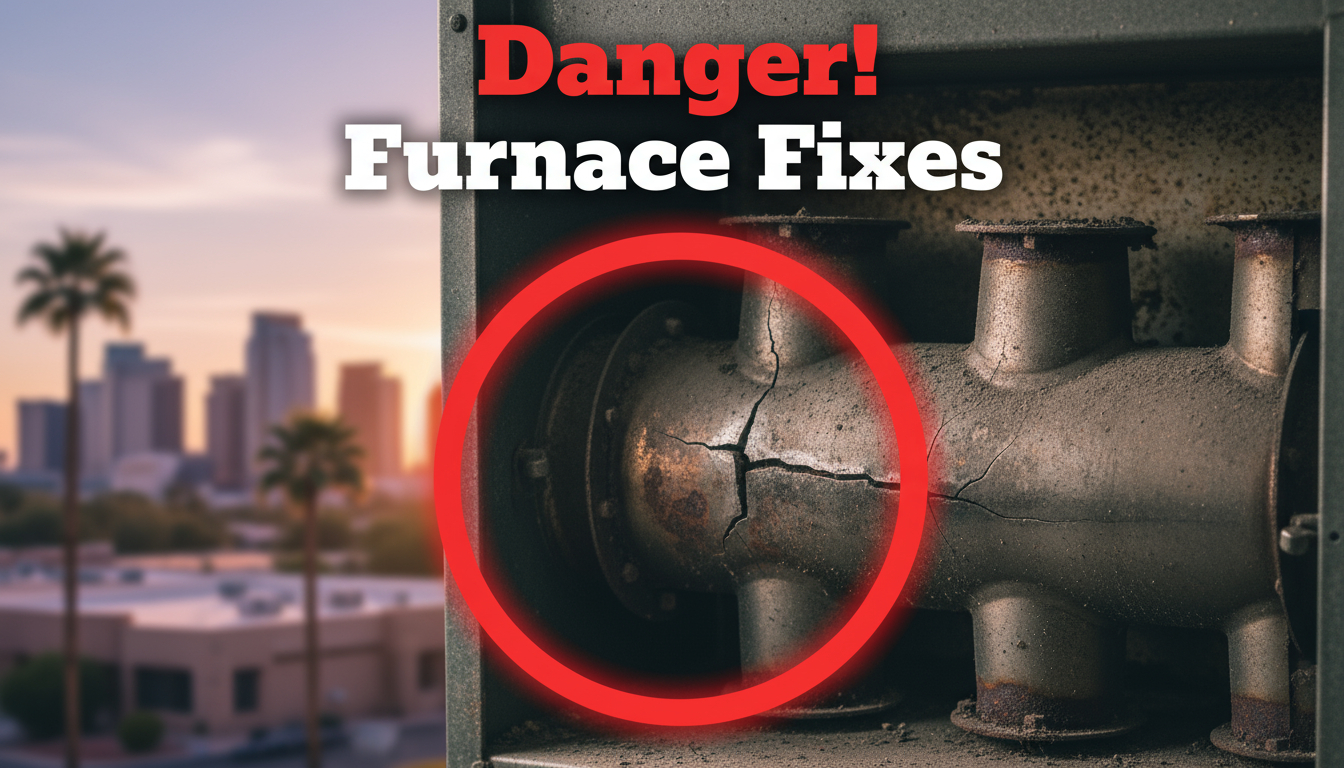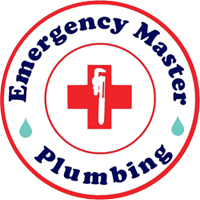

Furnace issues can disrupt your home comfort, especially during Phoenix’s cooler winter months when reliable heating is essential. This guide explores common furnace problems in Phoenix, Arizona, and provides practical solutions to help you troubleshoot and resolve them effectively.
Understanding Furnace Basics in Phoenix’s Climate
Phoenix’s desert climate brings unique challenges to furnace systems, including dust accumulation and extreme temperature fluctuations. While summers are scorching, winters can dip below 40°F at night, making a well-functioning furnace crucial for maintaining indoor warmth.
Furnaces in Phoenix are typically gas-powered or electric, designed to handle occasional use rather than constant operation like in colder regions. However, infrequent use can lead to neglected maintenance, resulting in breakdowns when you need heat the most. Regular inspections are key to preventing issues, as the dry air and dust can clog filters and components faster than in humid climates.
To ensure your furnace operates efficiently, start with basic knowledge: most systems include a thermostat, blower, heat exchanger, and burner. Understanding these parts helps identify problems early. For instance, Phoenix’s high dust levels often cause airflow restrictions, leading to overheating or inefficiency.
Identifying Common Furnace Problems
Homeowners in Phoenix frequently encounter specific furnace issues due to local environmental factors. Recognizing symptoms early can prevent costly repairs. Below, we’ll break down the most prevalent problems and their signs.
No Heat or Insufficient Heating
One of the top complaints is a furnace that fails to produce heat or only blows cold air. In Phoenix, this might stem from thermostat malfunctions, pilot light issues, or clogged filters exacerbated by desert dust.
Symptoms include rooms staying chilly despite the thermostat being set high, or the furnace running without warming the air. This problem can spike energy bills as the system works harder inefficiently.
Strange Noises from the Furnace
Unusual sounds like banging, rattling, or squealing often indicate mechanical issues. In Phoenix homes, these noises can result from loose components vibrating due to temperature changes or dust buildup causing friction in belts and motors.
If you hear persistent rattling, it might signal a cracked heat exchanger, which is a serious safety concern as it could leak carbon monoxide. Squealing typically points to worn-out belts or bearings needing lubrication or replacement.
Frequent Cycling On and Off
Short cycling, where the furnace turns on and off repeatedly, wastes energy and strains the system. Phoenix’s variable winter temperatures can confuse thermostats, but more often, this is due to dirty filters restricting airflow or overheating components.
This issue reduces the furnace’s lifespan and leads to uneven heating, making some rooms warmer than others. It’s particularly noticeable in larger Phoenix homes with zoned systems.
Pilot Light or Ignition Problems
Gas furnaces rely on a pilot light or electronic ignition to start. In Phoenix, dust and infrequent use can cause the pilot to go out or the ignition to fail, preventing the furnace from starting.
A yellow or flickering pilot flame instead of a steady blue one suggests incomplete combustion, potentially releasing harmful gases. Electronic ignitions might fail due to faulty sensors or wiring issues common in older systems.
Blower Runs Continuously
If the blower fan never shuts off, it could be a thermostat setting error or a limit switch problem. In dry Phoenix air, this might also indicate a failing control board or dirty evaporator coils causing the system to overcompensate.
Continuous operation increases wear and tear, hikes utility costs, and circulates dust throughout your home, worsening allergies.
Step-by-Step Fixes for Furnace Issues
Addressing furnace problems promptly can save money and ensure safety. Always prioritize safety—turn off power and gas before attempting DIY fixes. If you’re unsure, consult a professional.
Fixing No Heat or Cold Air Issues
Start by checking the thermostat: ensure it’s set to “heat” and the batteries are fresh. Replace the air filter, as Phoenix dust clogs them quickly—aim for monthly changes during winter.
Inspect the circuit breaker for trips and reset if needed. For gas furnaces, relight the pilot following your model’s instructions. If these steps fail, the issue might be a faulty thermocouple or gas valve, requiring expert intervention.
Clean vents and registers to improve airflow. In Phoenix, professional duct cleaning every few years removes accumulated sand and debris, boosting efficiency.
Resolving Strange Noises
For rattling or banging, tighten loose panels and screws on the furnace cabinet. Lubricate blower motor bearings with manufacturer-recommended oil to quiet squeals.
If noises persist, inspect the blower belt for wear and replace it—a simple task with basic tools. For suspected heat exchanger cracks, immediately shut off the system and call a technician, as this poses a carbon monoxide risk.
Correcting Frequent Cycling
Replace the air filter to restore proper airflow. Clean the flame sensor with fine sandpaper if it’s sooted, a common issue in gas furnaces.
Adjust the thermostat location away from drafts or heat sources that cause false readings. If cycling continues, calibrate the thermostat or check for oversized furnaces, which are inefficient in Phoenix’s mild winters.
Troubleshooting Pilot Light Problems
Clean the pilot assembly to remove dust buildup. Relight it per the user manual, ensuring a steady blue flame.
For electronic ignitions, reset the system by turning off power for 30 seconds. If ignition fails repeatedly, the control board or sensors may need replacement—best handled by pros to avoid gas leaks.
Stopping Continuous Blower Operation
Switch the thermostat fan setting from “on” to “auto.” Clean or replace the filter to prevent airflow restrictions triggering constant running.
Inspect the limit switch for dirt and clean it gently. In Phoenix’s dry conditions, humidity levels can affect sensors, so consider a whole-home humidifier to stabilize operation.
Preventive Maintenance Tips for Phoenix Furnaces
Prevention is better than cure, especially in Phoenix where furnaces sit idle for months. Schedule annual tune-ups before winter to catch issues early.
Change filters regularly—every 1-3 months depending on usage and pets. Keep the area around the furnace clear of clutter to ensure proper ventilation.
Test carbon monoxide detectors monthly, as gas furnaces can produce this odorless gas. In Phoenix, seal ducts to prevent dust ingress, improving efficiency and indoor air quality.
Consider energy-efficient upgrades like programmable thermostats tailored to Arizona’s climate, which can reduce bills by optimizing runtime.
When to Call a Professional in Phoenix
While DIY fixes handle minor issues, some problems demand expertise. Signs include gas smells, persistent malfunctions, or systems over 15 years old.
Professional services ensure compliance with local codes and safe repairs. In Phoenix, licensed technicians understand regional challenges like hard water affecting components or monsoon dust storms.
Delaying calls can lead to breakdowns during rare cold snaps, leaving you without heat.
Safety Considerations and Energy Efficiency
Always prioritize safety: install CO detectors and never ignore gas odors—evacuate and call emergency services. Energy efficiency ties into fixes; a well-maintained furnace uses less energy, aligning with Phoenix’s sustainability goals.
Opt for ENERGY STAR-rated parts during repairs to lower costs and environmental impact. Regular maintenance can extend your furnace’s life by 5-10 years.
In conclusion, tackling common furnace problems in Phoenix involves vigilance and timely action. For reliable solutions, we recommend Emergency Master Plumbing & Air, your local experts in heating services. Contact them at 623-584-4706 for prompt, professional assistance tailored to Arizona’s unique climate.
